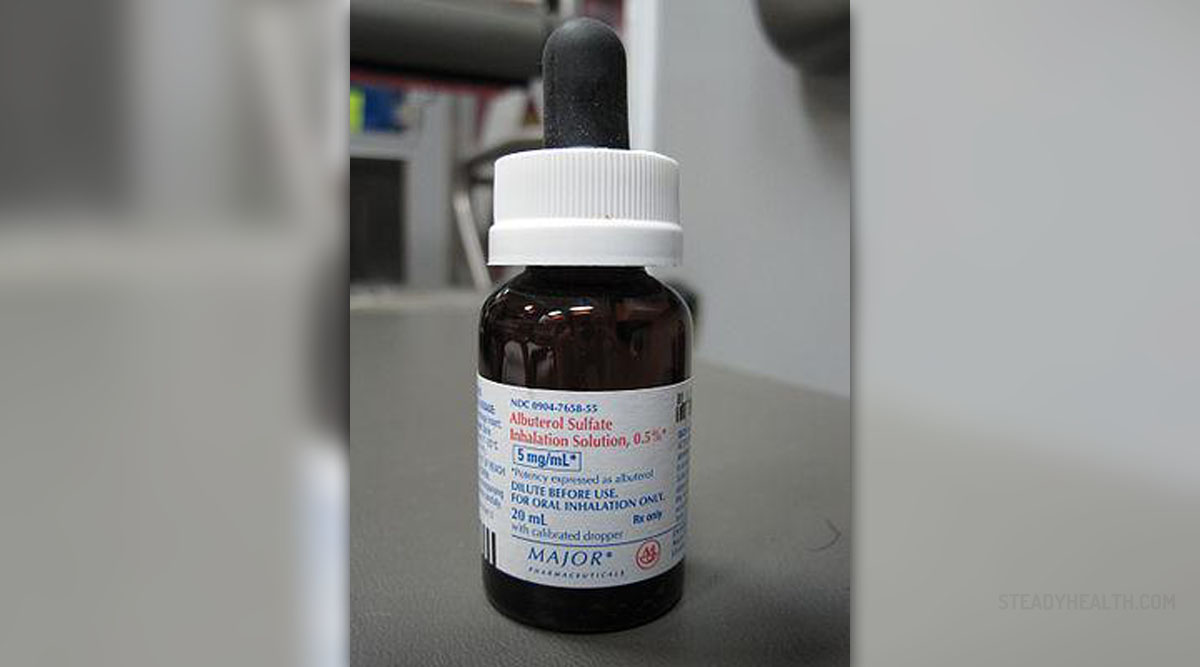
Albuterol sulfate is a drug designed to ease asthma and bronchitis. Both children and adults suffering from these respiratory problems may experience breathing difficulties due to narrowing (bronchospasm) of the respiratory paths. Albuterol can successfully deal with bronchospasm, provoking dilatation of the airways and resolving breathing problems.
This medication can be used in several different forms, so patients and doctors may opt for tablets, syrup, inhalers or nebulizers. Patients usually prefer inhalers or nebulizers, since these drug forms represent the simplest ways to use Albuterol and they lead to almost instant relief.
Expected Adverse Effects of Albuterol
Similarly to many other useful medications, Albuterol is known to cause certain side effects. Way of drug administration does not affect the occurrence of adverse effects of this medication. People may suffer from none or some medical problems after using either Albuterol tablets or syrup (or even an inhaler/nebulizer). Most patients do not experience any serious problems and these could even go away without any treatment whatsoever.
Albuterol may cause minor problems such as dry nose and coughing, especially if the drug was used via a nebulizer. The cause of this problem is usually irritation of the throat due to the nebulizer medication. Runny nose may also be Albuterol side effect.
Some patients treated with Albuterol may suffer from nausea or vomiting. Minor to moderate headaches may also be provoked by this medication, as well as dizziness or vertigo. Dizziness is usually present in patients using Albuterol via inhalers or nebulizers. Patients may experience some sleeping difficulties while using Albuterol to treat their asthma or bronchitis.
Albuterol can also provoke shivering or trembling immediately after a patient has taken the prescribed dose.
Mentioned adverse effects usually last for a short period of time (from several minutes up to one hour) and they do not require any medical treatment. If you notice that some of these symptoms last for longer than one week, consult your doctor and ask for treatment.
Albuterol is also known to cause serious problems if a patient have used too much of the drug or he/she is allergic to Albuterol. Overdose is proven to cause headache, severe chest pain, raise of blood pressure and consequent vision problems, tinnitus or irregular heartbeats. Albuterol overdose can also lead to breathing difficulties or decrease in potassium (shown as extreme thirst, frequent urge to urinate and weak muscles).
Albuterol Caution Measures
People allergic to Albuterol should not use this drug because it can cause skin changes, breathing problems and swelling of the tongue and face.If you happen to suffer from diabetes, hyperthyroidism or seizures, you should also avoid Albuterol. Patients prescribed diuretics, beta-blockers or antidepressants should consult their doctor prior use of Albuterol.
- medlineplus.gov/druginfo/meds/a682145.html
- medlineplus.gov/druginfo/meds/a601063.html
- Photo courtesy of Intropin by Wikimedia Commons: commons.wikimedia.org/wiki/File:Albuterol_Sulfate_(1).JPG

















Your thoughts on this
Loading...